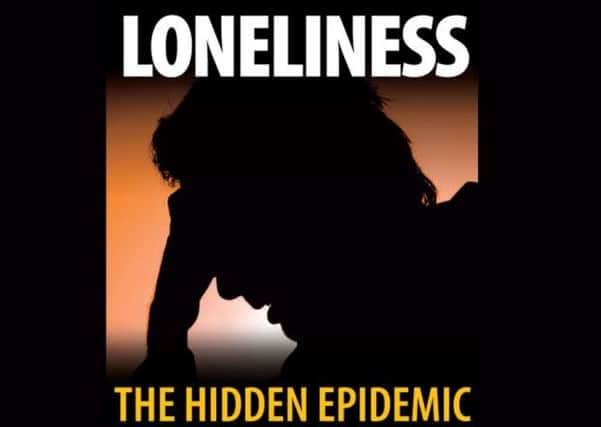Loneliness is linked to coronary heart disease, research warns


The review carried out b York University found that loneliness and poor social relationships were associated with a 29 per cent increase in risk of developing coronary heart disease (CHD) and a 32 per cent increase in risk of a stroke.
The report’s authors say efforts to prevent CHD and stroke would benefit from taking social isolation and loneliness into account.
Advertisement
Hide AdAdvertisement
Hide AdThe researchers carried out a review pulling together the findings from previously published studies to investigate the links between loneliness or social isolation and incidents of CHD and stroke.
A total of 4,628 incidents of CHD and more than 3,000 stroke events were recorded across the studies, which academics looked into.
These studies involved more than 180,000 people aged 18 or above.
The findings, which also involved researchers from Newcastle University and the University of Liverpool, have been published today in the BMJ’s Heart journal and funded through The National Institute for Health Research (NIHR).
Advertisement
Hide AdAdvertisement
Hide AdNIHR doctoral research fellow, Nicole Valtorta, from York University’s Department of Health Sciences, said: “When we aggregated the effect estimates across the studies we found that people with weaker social relationships had a 29 per cent greater risk of developing CHD than the people with stronger social relationships.
“And similarly when we looked at stroke the effect estimates taken across the evidence suggested that people who are socially isolated had a 32 per cent greater risk of developing a stroke.
“We take risk factors like obesity and physical inactivity for granted whereas we don’t yet with social isolation and loneliness. The data supports us taking it seriously.
“If we put these findings into context what we found is comparable in size to the effect of other psychosocial risk factors such as anxiety and job strain.
Advertisement
Hide AdAdvertisement
Hide Ad“From the perspective of public health what our findings suggest is that efforts to prevent CHD and stroke would benefit from talking social isolation and loneliness into account.”
The York University review searched 16 electronic databases for long-term studies set in high-income countries and published up until May 2015.
Researchers identified 23 studies suitable for analysis: three papers measured loneliness, 18 measured social isolation and two papers used a measure combining both.
The Yorkshire Post has been running an award-winning campaign to highlight the importance of tackling loneliness.
Advertisement
Hide AdAdvertisement
Hide AdLoneliness: The Hidden Epidemic was launched in February 2014.
It had two main aims, for loneliness to be universally recognised as a health priority and to encourage our readers to volunteer for support services.
Back then, nine of the region’s health and wellbeing boards failed to give significant mention of loneliness and social isolation in their over-arching strategies, a crucial document that sets out priorities for health and social care for the coming years.
In August 2014, we revealed that four of these had pledged action, and in February last year, on the first anniversary of the campaign, we revealed a further milestone - as three more Yorkshire authorities had responded to the call for action.